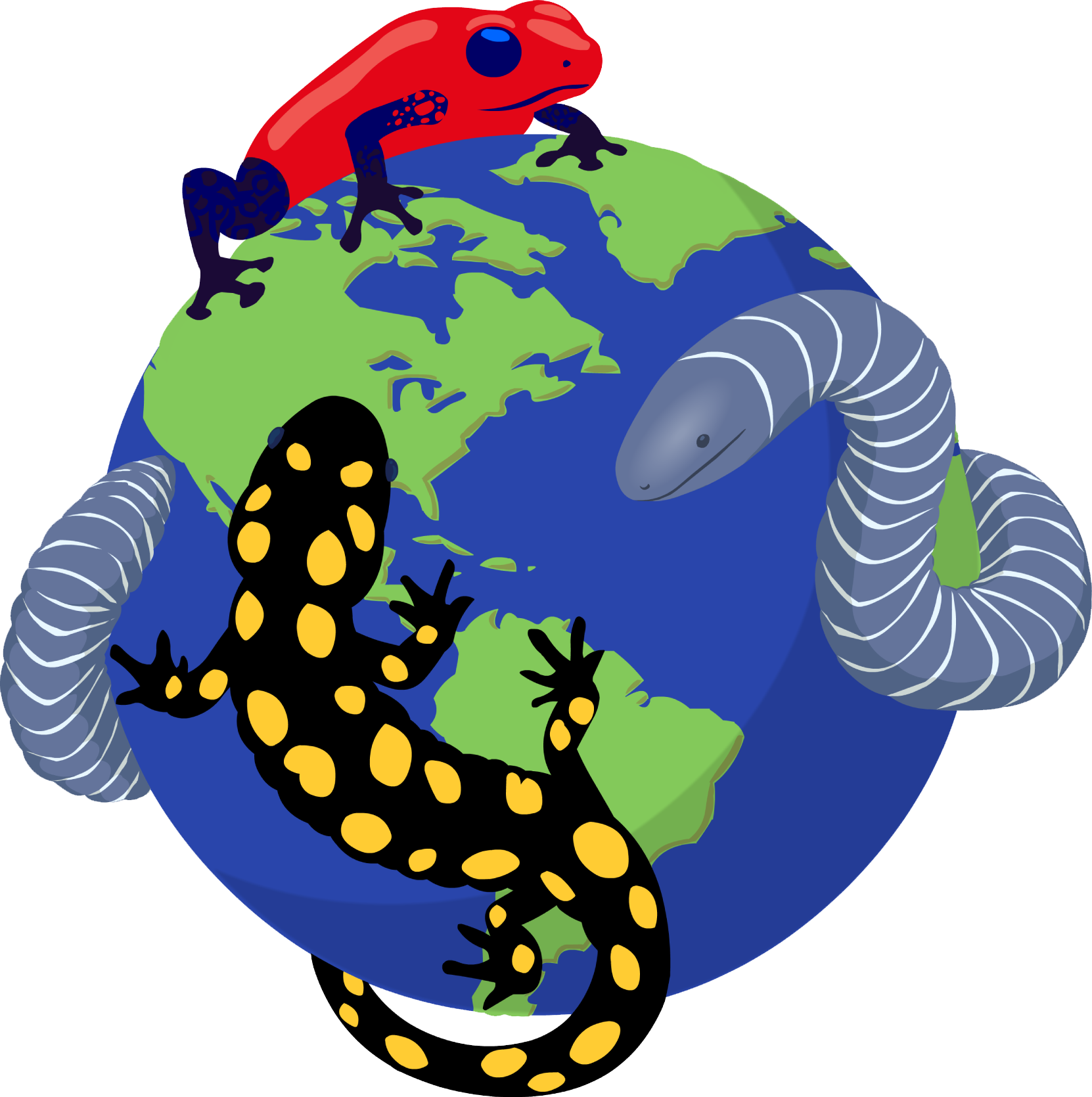|
(Translations may not be accurate.)
|
Working Groups of AmphibiaWeb
Work on AmphibiaWeb is guided by the expertise and performed by the efforts of scientists and educators around the world who volunteer their time in focused working groups.
Taxonomy Working Group
Conservation Working Group
Species Account Working Group
Taxonomy Working Group
 Taxonomy is central to the AmphibiaWeb database. Taxonomy is central to the AmphibiaWeb database.
The Taxonomy Working Group is responsible for adding newly described species, reviewing proposed taxonomic changes, and tracking the relevant scientific literature. They may add taxonomic notes to species pages to explain particularly complex decisions. Read their policies and criteria for decisions.
| Member |
Affiliation |
Expertise |
| David Blackburn, Lead |
University of Florida, Gainesville, Florida, USA |
African amphibians |
| Umilaela Arifin |
Zoologisches Museum Hamburg, Germany |
Southeast Asian amphibians |
| Alessandro Catenazzi |
Florida International University, Miami, Florida, USA |
South American amphibians |
| Chan Kin Onn |
National University of Singapore, Singapore |
Southeast Asian amphibians |
| Che Jing |
Kunming Institute of Zoology, Kunming, China |
Asian amphibians, especially in China |
| Sonali Garg |
University of Delhi, Delhi, India |
Asian amphibians, especially in India |
| Michelle Koo |
University of California, Berkeley, California, USA |
Informatics, North American amphibians |
| Jim McGuire |
University of California, Berkeley, California, USA |
Southeast Asian and North American amphibians |
| Ana Motta |
University of Kansas, Lawrence, Kansas, USA |
South American amphibians |
| Gabriela Parra Olea |
Universidad Nacional Autónoma de México, México City, México |
Central American amphibians |
| Santiago Ron |
Pontificia Universidad Católica del Ecuador, Quito, Ecuador |
South American amphibians |
| Sean Rovito |
Laboratorio Nacional de Genómica para la Biodiversidad, Irapuato, México |
Central American amphibians |
| Jodi Rowley |
The Australian Museum, Sydney, Australia |
Southeast Asian, Australian and New Zealand amphibians |
Conservation Working Group
 Conservation is one of the pillars of AmphibiaWeb. Conservation is one of the pillars of AmphibiaWeb.
The Conservation Working Group is currently focused on revamping the resource pages on amphibian conservation, analysing global patterns of conservation for amphibians, and related tasks to keep the database updated.
| Member |
Affiliation |
Experience |
| Emma Steigerwald, Lead |
University of California Berkeley |
Graduate student studying the response of Andean frogs to climate change and disease |
| Allie Byrne |
University of California Berkeley |
Postdoc focused on Bd and Bsal |
| Alessandro Catenazzi |
Florida International University |
Professor studying South American amphibians and disease |
| Julia Chen |
University of California, Berkeley |
Undergraduate apprentice in GIS |
| Michelle Koo |
University of California, Berkeley |
Curator and researcher in amphibian biogeography, conservation, and GIS |
| Julianne Oshiro |
University of California, Berkeley |
Undergraduate apprentice in GIS |
| Vance Vredenburg |
San Francisco State University |
Professor studying chytridiomycosis ecology, mitigation, and amphibian reintroduction |
Species Account Working Group
 One of the core components of AmphibiaWeb is the species account page. One of the core components of AmphibiaWeb is the species account page.
The Species Account Working Group strategizes how to make species accounts as valuable as possible including expanding the network of experts to keep existing species pages updated and to create content and author new ones.
| Member |
Affiliation |
Position |
| Ann T. Chang, Lead |
University of California, Berkeley |
AmphibiaWeb coordinator and editor |
| Rayna Bell |
California Academy of Sciences |
Curator of Herpetology and Senior Associate, AmphibiaWeb |
| Rebecca Tarvin |
University of California, Berkeley |
Curator of Herpetology, Professor, and Senior Associate, AmphibiaWeb |
| Molly Womack |
Utah State University, Logan |
Professor and Senior Associate, AmphibiaWeb |
Like our icons? We thank Jose Carlos Arenas Monroy for Batrachyla taeniata, Chuanixn Yu for Andrias davidianus, and Jose Carlos Arenas-Monroy for Hyperolius marmoratus on Phylopics!
|
Taxonomy is central to the AmphibiaWeb database.
Conservation is one of the pillars of AmphibiaWeb.
One of the core components of AmphibiaWeb is the species account page.
